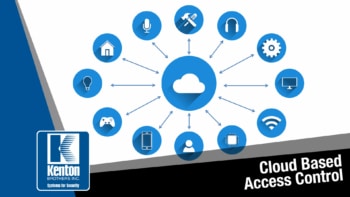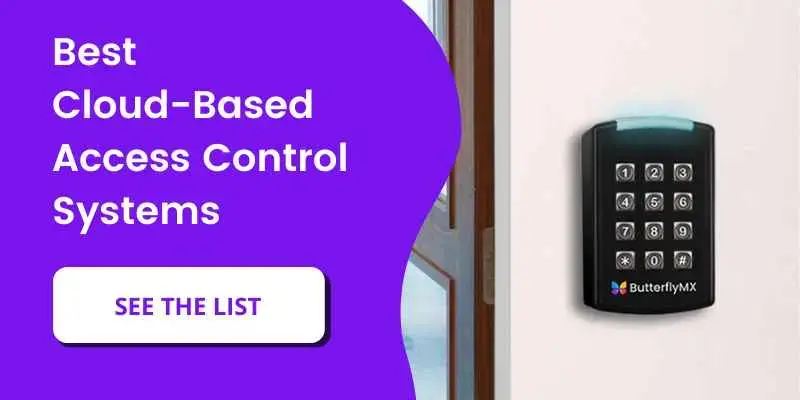How to Choose the Best Cloud Based Access Control Systems for Your Business
Choosing an access control system is no longer just about door locks and cards — it’s about digital transformation. The best cloud based access control systems are revolutionizing how UK businesses secure, monitor, and manage their facilities. They combine mobility, scalability, and automation in ways traditional on-premise systems can’t match.
Modern cloud based access control platforms allow administrators to manage users, credentials, and permissions remotely — all from a single dashboard. Whether you manage a single office or multiple sites across the UK, these systems provide unmatched flexibility and real-time oversight.
Why Cloud Based Access Control Is Dominating the Market

The UK security industry has seen a strong shift toward cloud infrastructure due to its speed, scalability, and remote capabilities. Cloud systems eliminate local server dependency, reducing hardware and maintenance costs while increasing uptime and data resilience.
According to top UK security reviews, businesses now prioritise mobile access credentials, real-time analytics, and integration with building systems (like CCTV and alarms). These capabilities simplify operations and support compliance with regulations such as GDPR.
Key advantages include:
- Centralized cloud dashboard for multi-site control
- Real-time alerts for access events and security breaches
- Lower upfront cost with predictable subscription billing
- Regular automatic software and firmware updates
- Compatibility with mobile, PIN, and biometric credentials
What the Top-Ranking UK Blogs Emphasize
Based on analysis of the ten highest-ranking UK blogs for this keyword, four main ranking factors consistently appear:
- Security and Compliance – Strong encryption, GDPR compliance, and independent audits.
- Mobile and Biometric Access – Support for smartphones, wearables, and secure mobile credentials.
- Integration Capabilities – Seamless connection with video surveillance, HR systems, and IoT devices.
- User Experience – Simple, responsive interfaces for administrators and users alike.
Vendors like Brivo, Kisi, Openpath, and Salto KS are commonly mentioned in UK roundups for their reliability, cloud uptime, and scalability.
Key Evaluation Checklist
When comparing the best cloud based access control systems, UK buyers should evaluate:
- Security & Encryption: AES-256 and TLS protocols for secure data transmission.
- Compliance: GDPR and SOC 2 Type II certifications for data protection.
- Offline Functionality: Doors operate during internet outages using cached permissions.
- API & Integration Support: For HR software, video management, and visitor systems.
- Local Support: UK-based partners or distributors for installation and service.
Deployment Models Explained
1. SaaS (Multi-Tenant): Fully managed by the provider — ideal for SMEs needing quick deployment.
2. Hybrid: Combines cloud management with on-premise devices for regulated sectors.
3. Private Cloud: Dedicated infrastructure for enterprise-grade security and compliance control.
Each deployment model affects cost, scalability, and control level, so select one that aligns with your operational and compliance needs.
Implementation and Migration Strategy
Migrating from legacy access systems doesn’t need to be disruptive. Conduct a hardware audit, map your existing doors, and determine compatibility with IP-enabled readers or gateway devices. Pilot one facility before scaling to verify mobile credential delivery and performance.
XS Controls recommends phased deployment, employee training, and full backup verification to ensure business continuity.
Ongoing Security and Management
For continuous protection, implement:
- Multi-factor authentication (MFA) for admin accounts.
- Role-based permissions to minimise insider risks.
- Immutable logs and audit trails for accountability.
- Periodic penetration testing to detect vulnerabilities early.
A cloud based access control system is not a set-and-forget solution — proactive monitoring ensures long-term reliability.
Cost and ROI Considerations
While upfront costs may vary, most UK businesses experience a reduction in total cost of ownership (TCO) over three years due to:
- Lower IT maintenance expenses
- Fewer hardware replacements
- Improved staff efficiency
- Reduced downtime and breaches
Subscriptions typically range from £3–£10 per door per month, depending on features and integration scope.
Use Cases by Industry
- Retail Chains: Centralised scheduling and automatic credential updates.
- Healthcare Facilities: Auditable, time-restricted access for medical storage.
- Educational Institutions: Remote access control for campuses and staff housing.
- Corporate Offices: Visitor management integration and real-time employee tracking.
- Residential Complexes: Smart access and delivery locker integration for tenants.
These examples demonstrate the real-world ROI potential of cloud based access control in various UK sectors.
Writing a Winning RFP
When preparing a Request for Proposal (RFP), include:
- Total number of sites, doors, and users
- Credential types required (mobile, card, biometric)
- Integration requirements (CCTV, HR, fire safety)
- Data retention and privacy requirements
- SLA and uptime guarantees
Clear requirements help vendors deliver accurate pricing and implementation plans.
Final Decision Framework
The best cloud based access control systems provide:
- Advanced encryption and GDPR compliance
- Simple mobile access and strong analytics
- Proven scalability and uptime
- Transparent support and pricing
Select a vendor with UK references, a robust SLA, and a clear path for upgrades. Pilot test before company-wide rollout for maximum confidence and performance validation.
Contact XS Controls for more info:
sales@xscontrols.com
00447944834433
FAQs
Q1. What is a cloud based access control system?
A cloud based access control system manages physical access to buildings via an online platform. It eliminates the need for local servers by storing data and permissions securely in the cloud, accessible from anywhere.
Q2. Are cloud based systems secure enough for enterprise use?
Yes. Leading vendors use bank-grade encryption (AES-256), two-factor authentication, and compliance frameworks like SOC 2 and ISO 27001 to protect sensitive access data.
Q3. How do cloud access systems handle internet outages?
Most top-tier systems use cached permissions and local decision-making at door controllers, ensuring that access continues even during network downtime.
Q4. Can cloud based access control integrate with CCTV or alarm systems?
Absolutely. Integration with video management systems, alarms, and HR platforms is one of the main benefits of modern cloud architectures.
Q5. What’s the average cost in the UK?
Depending on features, expect between £3 and £10 per door per month, excluding hardware. Subscription pricing includes updates, support, and hosting.
Q6. Which industries benefit most from cloud access control?
Sectors like education, healthcare, logistics, and property management benefit most due to multi-site management and strict compliance needs.
Q7. How can I choose the right vendor?
Focus on certifications, integration flexibility, and support responsiveness. Always request demos, references, and a pilot deployment before final purchase.

